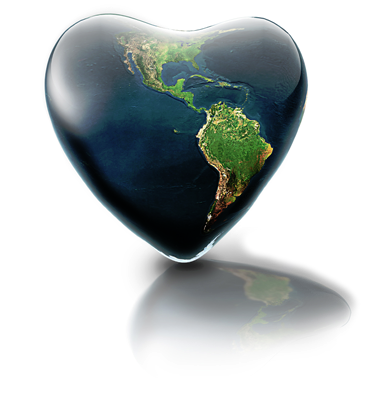One quarter of kids die before age 5; aid groups look at war’s psychological toll.
Associated Press
Updated 3:00 p.m. ET, Wed., Nov. 14, 2007
WAJID, Somalia – Abukar Mursal stopped going outside to play after a bullet grazed his back during a soccer game in Mogadishu, the wretched seaside capital where he was born.
Abukar, just 15 years old, simply added sports to his list of banned activities – no joining up with militiamen patrolling the streets. No guns. And finally, no soccer with his friends.
“In Mogadishu, fighting is everywhere,” Abukar told The Associated Press some three months after he fled the city in a car packed with his parents, three siblings and other relatives. “Every morning we heard bullets. I thank God we left that place.” After more than a decade of chaos, some aid groups now are focusing on the psychological problems of Somalia’s children of war.
In this country of 7 million people, with its ferocious violence and debilitating poverty, a quarter of all children die before age 5. Bullets zoom through the streets every day. “The children from Mogadishu have seen dead people in the streets, wounded people in the streets,” said Ibrahim Haji, a counselor for the aid group World Vision Somalia.
Often, Haji can tell if children have just arrived from Mogadishu by the way they act. “They can be very unfriendly,” he said. “They just go and sit somewhere and think. That’s all.”
‘Child-friendly space’ at U.N. base
World Vision recently opened a “child-friendly space” in Wajid, a U.N. aid base in southern Somalia, where counselors help children affected by the conflict, some of whom have suffered rape, brutality and other traumas.
The aid base offers a place to relax – there are soccer balls, Frisbees and small classrooms with mats where children can take naps.
Abukar, who said he associates mostly with kids from Mogadishu who have been through similar experiences, now lives in a camp with relatives and comes to the World Vision center to play soccer and to rest.
Christ Smoot, program director for World Vision Somalia, acknowledges that basketball and soccer might seem like luxuries in a country where the average life expectancy is just 46 and where malnutrition is common.
“But this is just another need – a place where kids can go and play and not feel scared,” he said. This is an opportunity for them to be kids. They’re the future leaders of Somalia and we are helping them to learn and grow.”
World Vision’s facility, with its fresh white paint, basketball court and cool concrete floors, is an anomaly in a nation that has not had an effective central government since 1991. In many parts of Somalia, government buildings and other structures were dismantled long ago and looted.
A radical group called the Council of Islamic Courts ruled much of southern Somalia for six months last year, but it was driven into hiding during a lightning-quick war in December. The Islamists have vanished from the streets, but are fulfilling their promise to launch and Iraq-style insurgency, using land mines, roadside bombs and suicide attacks.
Human Rights Watch has accused all sides in the conflict of war crimes, saying fighters target hospitals and other medical facilities. The battles have devastated the capital, already one of the most violent and gun-infested cities in the world.
Land mine mistaken for toy
Over the summer, five children who apparently mistook a land mine for a toy were blown away when it detonated – a stunning reminder of the toll war takes on the young.
Thousands of civilians have been killed since December, and a fifth of Mogadishu’s 2 million residents have fled. Fighting that started late last month has driven about 36,000 people from their homes, according to the United Nations.
Many have come to Wajid, about 175 miles northwest of Mogadishu, where there is relative peace. The town also has makeshift camps where entire families squat in huts made of tarps and thorny branches.
In September, international humanitarian agencies agreed on new guidelines to address mental health, focusing on building social networks and other support groups.
“Until now, many people involved in emergency response have viewed mental health and psychosocial well-being as the sole responsibility of psychiatrists and psychologists,” UNICEF said, adding that long-term mental problems “threaten peace, human rights and development.”
Siad Abukar, a 13-year-old who came to Wajid two months ago from Mogadishu, said he tries not to think about his former home.
“When I think of Mogadishu, I feel like fighting, Abukar said. “I won’t go back, never.”
Safiya Aden, who also arrived two months ago, said she sleeps easier here than in Mogadishu, where she heard rumors that “ladies were being raped.”
“I came here with my parents, she said. We heard there was peace.”
FROM MSNBC.COM
Sent to us by Quin Frazer, a persistent communicator and contributor to our work.

